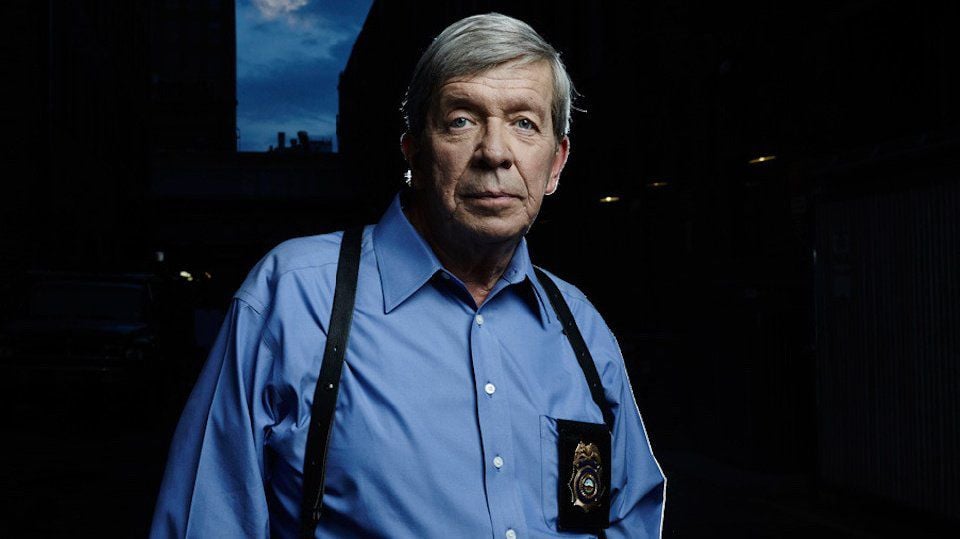Investigation Disocvery’s ‘Homicide Hunter: Lt. Joe Kenda: No Good Deed’ follows the death of 25-year-old Ricky Nelson in Colorado Springs, Colorado, in March 1987. The officers were able to catch the alleged perpetrators based on witness testimony, but a jury acquitted them of all charges. So, how did Ricky die, and why were the supposed killers let go without any consequences? If you’re interested in finding answers to these questions and more, we’ve your back.
How Did Julius “Ricky” Nelson Die?
On March 31, 1987, Deanne Parker was exhausted after her late-night shift and was looking to retire for the day around 2:36 am in her home in Colorado Springs in El Paso County, Colorado. The 29-year-old was about to fall asleep when she was jolted awake by the sounds of loud arguments outside her bedroom window. She heard multiple gunshots and looked outside to see a girl screaming for help inside a car. A concerned Deanne called 911 and notified the authorities.
Investigators from the Colorado Spring Police Department arrived at the scene to find Julius “Ricky” Nelson, 25, slumped to his right side in the passenger seat of his car. There were eight shell casings of .22-caliber found by the vehicle and seven bullet holes on the side of the automobile. Ricky was shot in the chest, and his white tee was drenched with blood. The coroner arrived and declared him dead at the scene from a gunshot wound to the chest area. He was shot with a small .22-caliber gun, the same as the shell casings found by his car.
Who Killed Julius “Ricky” Nelson?
The police learned there were two witnesses to the shootout, one of them being Walter “Scappy” Walker, a longtime acquaintance of the victim. The other was Ricky’s erstwhile girlfriend, Cathy Townsend, but she was too disturbed and agitated by her boyfriend’s death. She had been taken home by the responding officers and was to be interviewed at a later date. The investigators interviewed Scappy to learn he had been Ricky’s friend since childhood and did not have a clear picture of what had happened that night.
He claimed he was outside peeing when he saw a blue car pull up, and two individuals got out. Scappy alleged the two strangers were embroiled in a verbal argument with Ricky before they pulled out a gun and started shooting. The police found the physical descriptions he had given of the assailants were too vague. They understood he was hiding something and not telling them the whole truth. But they could procure no charges to detain him and had to let him go for then.
The police learned the shootout happened in front of a house infamous for being a destination of drug addicts and selling crack cocaine. They knocked on the door, and an ex-convict Smitty, who had been detained numerous times on drug charges, answered the call. He initially claimed he had seen nothing but pestered by the officers he admitted to hearing loud honking and incessant shouting. Smitty also said he had seen the blue car and told the detectives they were trying to sell drugs. He allegedly tried to intervene but moved away after being threatened.
The investigators informed Ricky’s untimely death to his father, who lamented about always being afraid something like that would happen. The parent said his son ran with bad people and had recently served prison for a few months on robbery charges. When inquired if Ricky had any enemies, the crestfallen father replied he only knew of some Los Angeles gangbangers, who seemingly had beef with Ricky over selling drugs. According to him, the gangbangers were selling cocaine in front of a school when his son intervened and confronted them.
What caught the police’s attention was when the father mentioned the assailants being in a blue car. At this point of the investigation, they were convinced that the occupants of that particular vehicle were the perpetrators of this shootout. By then, Cathy had managed to calm down and was brought to the station for questioning. She told the officers she and her boyfriend were returning from the movies on the night of March 31 when they stopped to pick Scappy up. He asked for a lift and said he was looking to score a $20 rock of crack cocaine from Smitty.
Cathy narrated how Snappy got out in front of the crack house, went to a blue car parked outside, and was talking to the occupants when a fight broke out. Ricky got out to break the fighting, and that was when she heard gunshots and found her boyfriend stumbling back and dying inside his vehicle. However, she claimed she could not catch a glimpse of what exactly happened or who shot Ricky. But, she alleged Snappy knew them and said their names were Wade and Albert.
Albert Was Not Charged, and Wade Was Acquitted
One of the officers immediately guessed she might be talking about Albert Meadow. According to the show, Albert had been arrested near Smitty’s drug den a few months ago for another unrelated shooting incident. They brought Snappy in for interrogation, and he admitted he had tried to broker a peace deal between the LA gangbangers and Ricky. However, one of them took a swing at him, and Ricky got out his tire iron to break off the fight.
He hit Albert with the rod and advanced toward the other occupant, Wade Douglas, and the latter emptied his gun at him. Albert was arrested a few days later in front of Smitty’s crack house, and the Colorado Police liaisoned with the St. Louise Police to apprehend Wade from his parent’s residence. Wade was charged with second-degree murder, but a jury acquitted him on grounds of self-defense. Albert was not involved in the shooting directly and was never charged.
Read More: Nicholas and Elizabeth Newall Murders: Where is Roderick Newall Now?

